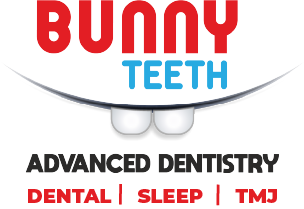Mouth breathing and effects of Dental health
Mouth breathing and effects of Dental health
Brushing and flossing regularly ensures having a healthy mouth. But there are a few important things to do and avoid. Following them will help your smile to be in tip-top shape. Mouth breathing is something that you should avoid doing. Although an ordinary involuntary act, it does impact negatively dental health. It might be essential during strenuous exercise or while experiencing nasal congestion. If you breathe all the time through our mouth, then it may result in contracting various types of oral health issues. Mouth breathing in children can cause crooked teeth and facial deformities. Adults may experience gum disease and bad breath.
Reasons for mouth breathing
Mouth breathing might be due to some underlying issue present in the nasal passage. One major reason for people to mouth breathe is CNO (Chronic Nasal Obstruction). At times, oxygen might not be available in the lungs in sufficient amounts through the nose. In such a case, you may resort breathing through your mouth.
This is not good as you might contract some serious and harmful oral health concerns. Breathing through your mouth dries it out, thus leading to reduction in saliva amount created. Saliva is crucial to eliminating harmful bacteria as well as neutralizing acids in your mouth. If there is not experienced sufficient production of saliva, then there can be tooth decay along with other health problems.
Nasal airway obstruction is considered to be the main reason for mouth breathing. Some of the reasons for your nose to get blocked can be:
- Tumors
- Jaw size & shape
- Nose shape
- Nasal polyps
- Deviated septum
- Enlarged tonsils
- Enlarged adenoids
- Nasal congestion resulting from sinus infection, allergies or cold
- Habit, anxiety and stress might also cause mouth breathing even if there is no obstruction in nose.
Signs of being a mouth breather
It could be that you are mouth breathing during sleep instead of your nose, without realizing this issue. You can check for certain signs that might indicate you suffering from this oral problem like:
- Dry mouth
- While sleeping, snoring with open mouth
- Chronic bad breath
- Cracked, dry lips
- Brain fog
- Frequent cavities
- Large tonsils
- Chronic fatigue
- Crowded teeth
- Daytime sleepiness
- Increased airway inflections like colds, ear, sinus, etc.
You should immediately consult a good dentist if you experience any of the above-mentioned symptoms.
Treatment
Treatment offered to cure this issue is based on the type of issue that you are experiencing currently. Nasal sprays, prescription steroid, anti-histamines and nasal decongestants are recommended to improve breathing if the cause is cold or allergy. Tonsils and swollen adenoids are removed surgically to treat mouth breathing. If sleep apnea is the reason, then you will be prescribed to wear a face mask appliance at night referred to as CPAP (continuous positive air pressure therapy). It enables your airways to remain open during sleep.
You should also maintain excellent oral hygiene to reduce negative effects caused by mouth breathing and schedule routine dental checkups.
